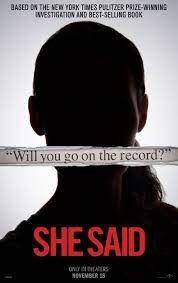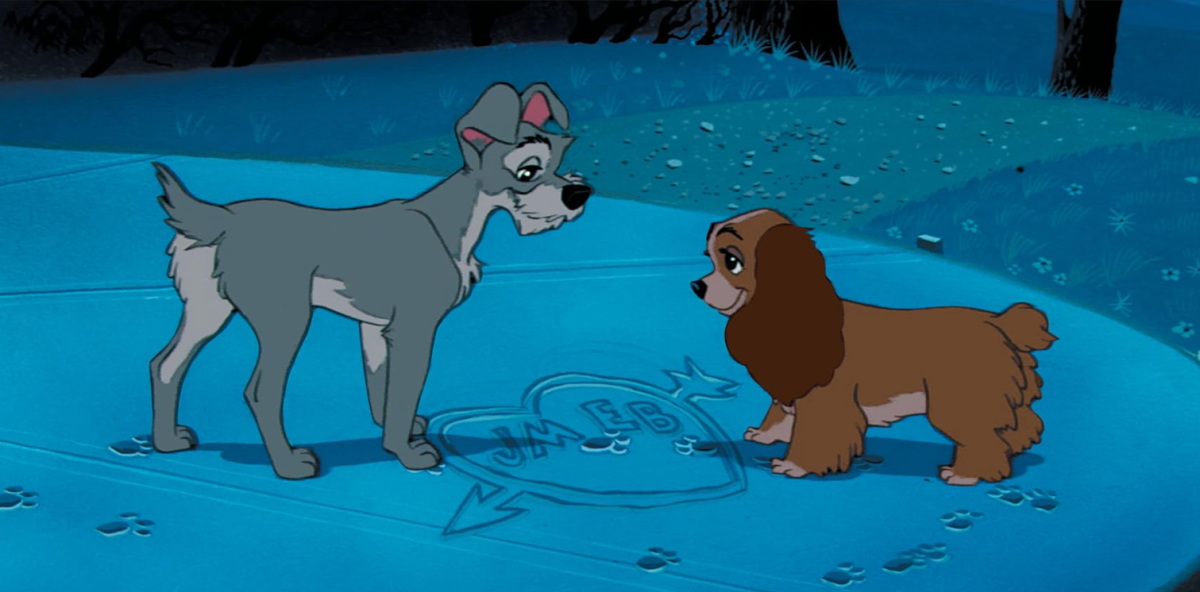Rating: 8.5/10
Maria Schrader’s “She Said” (2022) captures the cruelty of womanhood and corruption of Hollywood in a manner that encapsulates dirt, dishonesty and complete and utter heartbreak.
Released on Friday, Nov. 18, the film, follows the investigation of New York Times journalists Megan Twohey and Jodi Kantor in their investigation into the sexual assault allegations against former film producer Harvey Weinstein. It also acts as an inspiring look into one of the starters of the #MeToo movement, as well as an impressive commentary on the imbalance of power dynamics within Hollywood.
Between Carey Mulligan and Zoe Kazan’s incredible performances, as well as Schrader’s attention to detail and regard for accuracy, the film was easily one of the best I’ve seen this year. While a film detailing the sexual assault case made against Weinstein could’ve ended up a tedious slew of statistics, or a disrespectful dramatization of gruesome sexual assault scenes, Schrader’s take on the investigation is thorough, classy and incredibly powerful without being exploitative.
Beginning strongly with Megan Twohey — played by Mulligan — reporting on sexual assault allegations that were made against former President Donald Trump before he won the 2016 election, the film tackles sexual assault in a manner that is comprehensive and true to the time, rather than immediately jumping into Weinstein’s plot. It is also done almost completely chronologically, following Twohey and Kantor as they discover more of Weinstein’s victims, yet fail time and time again to get any of the women to go on the record for fear of stepping forward alone.
Through her use of chronological sequences within the investigation, Schrader amplifies already rising feelings of anger and anticipation, building up to the perfect heart-stopping moment when Weinstein is finally exposed and creating a flawless film climax while still being true to actual events.
Despite the fact most audience members should already be aware that Weinstein will eventually be caught and convicted, this ticking time bomb of a film does an incredible job at building up the investigation to its peak while still managing to end on a note of ambiguity.
Another impressive aspect of “She Said” is the manner in which Schrader is able to capture pure female exhaustion, both in relation to the investigation as well as just the general frustration and constant consumption that is womanhood. This pain is reflected incredibly not only through the characters of Weinstein’s victims but also through Mulligan and Kazan’s phenomenal performances as Megan Twohey and Jodi Kantor.
Mulligan’s portrayal of Twohey, who is a bit more seasoned and hard than Kazan’s take on Kantor, not only creates the perfect contrast between the partners but also highlights why these women worked so well together in the real investigation. Furthermore, Schrader also did a fantastic job at humanizing these women rather than depicting them as drone journalists, putting a strong emphasis on their home lives, children and everything they were sacrificing for the sake of the investigation.
Ultimately, while “She Said” ended on a note of triumph, the film’s overarching topic made the feelings of victory short-lived. From beginning to end, “She Said” is thought-provoking, cruel and melancholic in the best way, leaving audience members to sit with and reflect upon society’s treatment of women and what kind of environment allows people like Weinstein to grow and flourish time and time again.
It is a dark but immensely important piece of work that I firmly believe Schrader should receive wide recognition for.










